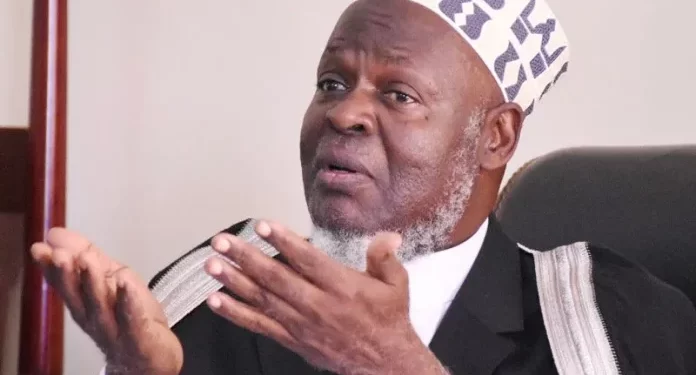Dear Your Eminence Mufti Mubajje,
Your recent call to ban TikTok, coupled with your sharp words for its abusers, has set Uganda ablaze with debate. Many are furious, seeing it as an assault on their freedom to speak, create, and connect in a digital age. You’ve raised a vital point about the misuse of platforms like TikTok and X—spaces where personal vendettas and crude behavior too often drown out decency. But I urge you to reconsider your target. TikTok isn’t the problem. Your followers—and ours—are.
Social media doesn’t invent bad manners; it amplifies what’s already there. When Ugandans use these tools to settle scores or flaunt poor upbringing, it’s not the app’s fault—it’s a reflection of us. Yes, the platform’s addictive pull can magnify our worst impulses, but banning it is like mopping the floor during a flood. The water keeps coming because the source hasn’t been fixed. And that source, Mufti, lies closer to home than you might think.
As the leader of Uganda’s Muslim community, you head an institution tasked with something sacred: instilling morals and godly values. Mosques, like churches, are meant to be more than gathering spots—they’re where we forge integrity, humility, and service. When those values fade, when “good Muslims” or “good Christians” drift from their teachings, we see the rot: corruption in government, neglect of God’s people, even the petty online feuds you decry. Society unravels not because of TikTok, but because its moral compass is spinning.
I’ve watched religious leaders —Muslim, Christian, cultural—point fingers at politicians, technology, or secular drift, as if they alone bear the burden of our failings. But what about your flock? When your followers steal from public coffers or turn social media into a battlefield, isn’t that a spiritual failure too? It begs a question many of us are asking: what’s the role of religious leaders when their congregants fuel the very problems they condemn? Blaming TikTok feels easy; looking inward is harder.
This isn’t to absolve social media. TikTok’s endless scroll rewards vanity and division—it’s a megaphone for human flaws. But it’s still just a tool. Ban it, and the same vices will pop up elsewhere. The real fix isn’t a decree from above; it’s a renewal from within. Your followers don’t need you to silence their apps—they need you to guide their hearts. If religious institutions doubled down on accountability and compassion, perhaps we’d see less of the chaos you lament, online or off.
So, Mufti, I propose a shift. Less preaching against TikTok, more teaching through action. Rally your peers—imams, pastors, elders—to model the change we crave. Lead by example: organize community service, hold open talks with the youth, even take to TikTok yourself to spread mercy, not judgment. The pulpit still carries weight, but it’s strongest when it inspires, not just scolds. Uganda’s young people, glued to their screens, aren’t beyond reach—they’re waiting for a reason to look up.
You’ve sparked a conversation about freedom and its limits. Let’s not stop at bans or blame. TikTok isn’t the enemy; it’s a mirror. The flaws it reflects—ours, yours, mine—won’t fade with a policy. They’ll fade when we choose better, guided by leaders who don’t just decry the flood, but teach us to mend the cracks. Start there, Mufti, and we might all rise together.
Mike Ssegawa is a journalist and founder of Watchdoguganda.com
Do you have a story in your community or an opinion to share with us: Email us at editorial@watchdoguganda.com









